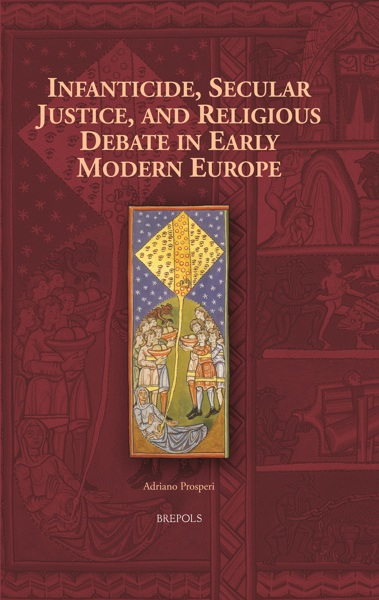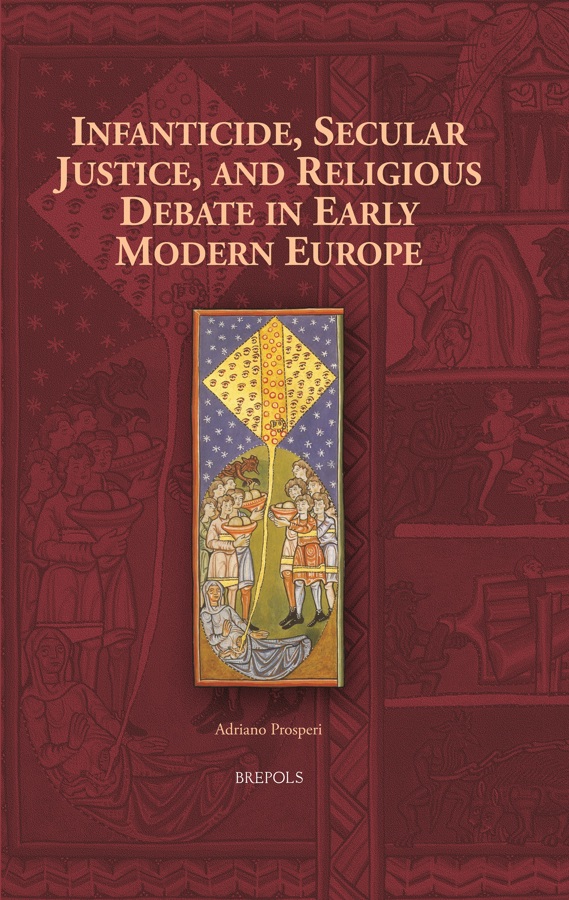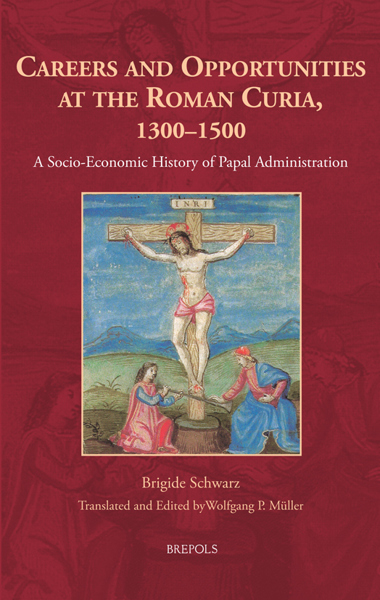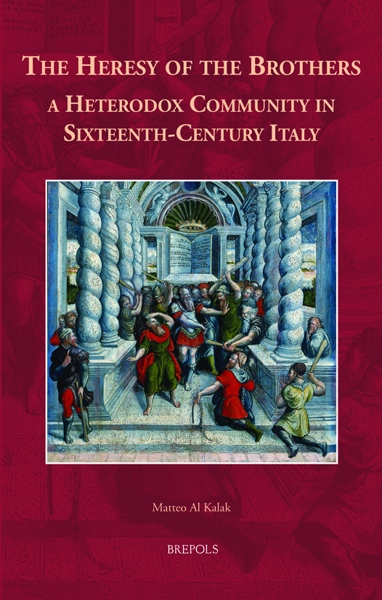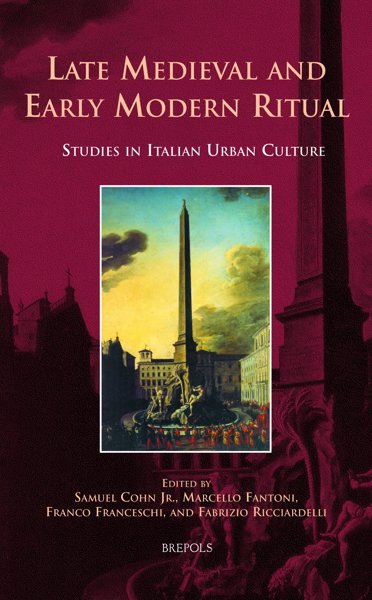
Infanticide, Secular Justice, and Religious Debate in Early Modern Europe
Adriano Prosperi
- Pages: 407 p.
- Size:156 x 234 mm
- Language(s):English
- Publication Year:2016
- € 130,00 EXCL. VAT RETAIL PRICE
- € 65,00 EXCL. VAT DISCOUNT PRICE VALID UNTIL 30 Jun 2026
- ISBN: 978-2-503-53174-8
- Hardback
- Available
- € 130,00 EXCL. VAT RETAIL PRICE
- ISBN: 978-2-503-55800-4
- E-book
- Available
This book focuses on an obscure case of infanticide from early modern Italy, in order to pursue a heated debate on the essence of life and the nature of the soul, where theological, moral, and scientific principles come into conflict.
“(…) the translation of this work is rigorous and a pleasure to read, and reflects, one hopes, a sign of the growing, though delayed, interest by historians in infanticide, a subject that, as Prosperi demonstrates, allows reflections beyond simply criminological analysis.” (Elena Taddia, in Renaissance Quarterly, 70/3, 2017, p. 1108)
“The value of Prosperi’s work lies in his ability to discern the multifaceted layers of cultural meaning embedded in a single line of text from the criminal archives. This text succeeds as an illustration of how the historian can breathe life and colour into the seemingly emotionless and formulaic literary composition of archival legal documents.” (Jane Bitomsky, in Parergon, 34/2, 2017 p. 248)
“Overall, then, this book is meticulously researched and densely argued. It transports the reader from the intimacy of Lucia’s experiences (…) through to the wider legal and religious implications of her actions. The work goes beyond the history of childhood, contributing something to the largely unexplored area of the history of infancy. It also ventures into the history of the very meaning of how our human past has interpreted and understood what it means to be human(…)” (Anna French, in Journal of Ecclesiastical History, 70, 2019, p. 392)
“Any book by Adriano Prosperi is a welcome event for early modernists, doubly so when an English translation appears for those unacquainted with this renowned scholar’s Italian work (…) Readers will emerge from this book with a thorough, and thoroughly humane, understanding not only of an obscure individual tragedy but of the way theology, law, doctrine, and premodern science governed the meaning of reproduction and the beginnings of life itself, and fell disproportionately on the shoulders of women.” (W. David Myers, in Early Modern Women: An Interdisciplinary Journal, 14/1, 2019, p. 182)
On 5 December 1709, in Bologna, Lucia Cremonini is accused of a terrible crime: the murder of her newborn son. This tragic episode, exhumed from the depths of time, is placed at the centre of an enthralling study by one of the leading scholars of modern history and the history of religious beliefs. During the course of a dramatic trial the crime is debated by representatives of religious, philosophical, moral, and scientific culture, all characteristic of the formative period of the modern world and all seeking a convincing answer to fundamental questions. When does life begin? When can a human being first be described as such, so that his or her killing is a crime punishable by the maximum penalty? What is the true role of baptism in the formation of the human person? These are all highly topical questions in an age like our own, where belief is subject to the powerful assaults of scientific research and new questions are being raised about the essence and the limits of human existence.
This is a translation from the original Italian publication 'Dare l'anima' (Einaudi, 2005).
Translation by Hilary Siddons.
Acknowledgements
Part I. The Story
Chapter 1: From the Trial Records
Chapter 2: Infanticide as an Obsession
Chapter 3: Infanticide as a Social Practice: From a Sin to a Crime
Part II. The Mother
Chapter 4: Una figliola grande, giovane fatta (A Grown Girl, a Mature Young Woman)
Chapter 5: ‘A young priest’
Chapter 6: Il Carnevale prossimo passato (The Last Carnival past)
Chapter 7: ‘He robbed me of my honour and took my virginity’
Chapter 8: ‘I was always on my own’
Chapter 9: M’indussi col detto cortello a dare la morte a detto mio figlio partorito vivo mettendoli la punta di detto cortello nella gola (I Forced Myself with the Said Knife to Kill my Said Son whom I had given Birth to Alive, by putting the Point of the Said Knife into his Throat)
Part III. The Son: The Seed and the Soul
Chapter 10: Un puttino maschio (A Baby Boy)
Chapter 11: Ben compito in tutte le sue parti (Well-Formed in All Its Parts)
Chapter 12: A ‘Creature’ Without a Name, or When a Man is not a Man
Chapter 13: Baptism
Chapter 14: To Die Without a Soul
Chapter 15: Ensoulment
Chapter 16: The Person
Part IV. Justice
Chapter 17: The sentence: Ut moriatur et anima ab eius corpore separetur (That She Die and Her Soul be Separated from Her Body)
Chapter 18: Accolta e Consolata (Received and Consoled)
Chapter 19: Repentance and Forgiveness
Afterword
Bibliography
